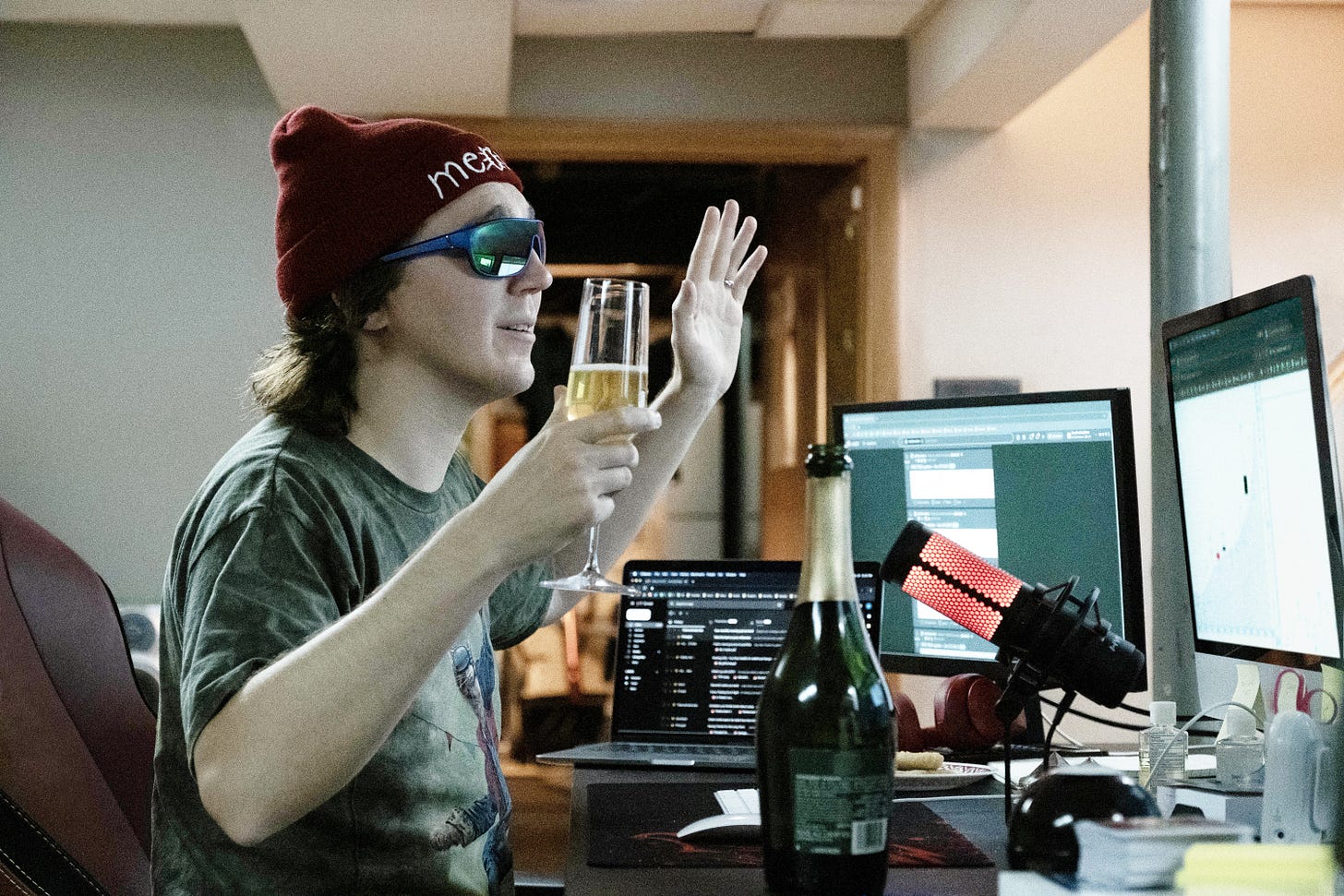‘Dumb Money’ Review
How the pandemic upended the market.
FOR THE MOST PART, Hollywood has hoped to avoid the recent unpleasantness.
Oh, sure, you’ll occasionally see someone wearing a mask in the background; quarantines or isolation are sometimes mined for humor. Occasionally a character will drop a poignant but oblique remark, as when Hercule Poirot (Kenneth Branagh) notes in A Haunting in Venice that “Plagues make people afraid, and fear makes people do terrible things.” But COVID-19—and the attendant lockdowns, mandates, isolation, job loss, etc.—has, for the most part, been relegated to the dustbin of cinematic history. We’re all pretty happy to just, like, let all that go, man.
Dumb Money is a middling movie qua movie. It’s the story of Keith Gill (Paul Dano), aka DeepFuckingValue, aka Roaring Kitty, who, leading a band of fellow Redditors (the “apes”), put the squeeze on deep-pocketed short sellers in 2021 by going long on GameStop stock in hopes of ending hedge-fund hegemony on the stock market. The movie is interesting, compelling even, but not especially cinematic. It’s too atomized, too didactic, too reliant on people staring at screens and talking on phones.
This isn’t to say it’s entirely devoid of pleasures. Pete Davidson in particular brings a real spark to the movie as Keith’s loser little brother. I know Davidson is considered something of a punchline by the internet writ large, but between this and his Peacock show Bupkis, he’s demonstrated in 2023 that he has that hard-to-quantify spark of stardom that just lights up the screen. Your eyes are drawn to him; his goofiness is infectious; and despite his character being little more than a collection of tics—an unemployed millennial DoorDash driver who eats the fries you ordered, you know the type—his appearances were the only times I felt like I was seeing a real person on the screen. The apes, by contrast, felt like a series of tropes: the college kids up to their eyeballs in debt, the nurse driving a broken-down Honda, the GameStop clerk who doesn’t want to push used merch on the customers.
So, again: not a great movie, precisely. But an interesting one, at least in part because it posits that the GameStop episode and the whole we’re-not-gonna-take-it vibe were an almost direct reaction to the pandemic itself. And the hallmarks of the pandemic are, typically, signs of oppression and villainy.
Consider masks. In the film, you routinely see wealthy hedge funders Ken Griffin (Nick Offerman) and Gabe Plotkin (Seth Rogen) sitting near waiters and household staff. They are never masked; the help always is. While one is tempted to read this as simple discourtesy, consider this: repeatedly in the film, one of our heroes—the aforementioned GameStop clerk, Marcus (Anthony Ramos)—lowers his mask, only to have his jackass boss (played to the jackass hilt by dead-eyed Dane DeHaan) command him to pull it back up. Dumb Money does not posit masking as something we do to protect each other; it posits it as a system of control, just another lever the powers-that-be can pull to exert their power. Masking sits right alongside designating retail employees essential while bosses work from home, short-selling stocks of healthy companies to destroy their businesses for a few bucks, or getting the RobinHood app that all of these nouveau investor apes use to restrict the ability to buy GameStop stock, a move that functionally serves to bail out the hedge-fund jerkoffs.
The most compellingly human moments in the movie involve unexpected and extended pangs of loneliness—another hallmark of the pandemic. There’s an aching moment when early ape investor Jennifer (America Ferrera) is filling up her car and strikes up a conversation with a stranger at the next pump over, awkwardly distanced but simply happy to have someone new to talk to, someone to meet and commiserate with.
As the film progresses, you come to understand the revolt of the apes as less an economic phenomenon and more of a social club, an outlet for people who were growing to hate the enforced, dehumanizing isolation of a world locked down. None of this is to say that the measures taken were unnecessary, only that they had consequences both expected and unexpected. One just happened to be a stock market revolt the likes of which has never been seen before.




